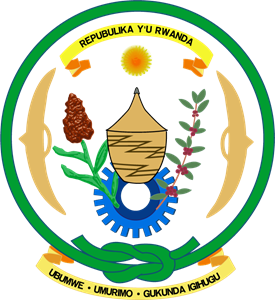Rwanda

Located in the Great lakes region of East Africa, Rwanda is dominated by highlands, earning it the name “Land of A Thousand Hills”. Agriculture is the mainstay economic activity, with over 70 percent of the population engaged in the sector, which accounts for about one-third of the national GDP. Among the main challenges facing the agriculture sector include low levels of productivity for both crops and livestock due to low input use, poor production techniques and inefficient farming practices, erratic rainfall, increasing incidence of high winds, soil erosion, land slides and seasonal temperature shift.
Through the “increasing water productivity for nutrition-sensitive agriculture and improved food security and nutrition” project, FAO in partnership with IFAD, will support the Government’s ongoing efforts to mainstream nutrition-sensitive agriculture towards the alleviation of malnutrition and sustainablefood security in the country. In addition, the project will support the IFAD “Kayonza Irrigation and Integrated Watershed Management Project (KIIWP)” objective to improve the resilience of smallholder farmers to droughts and effects of climate change through increased levels of production and productivity of selected crops and livestock, as well as improved market access and business development.
In Rwanda, the project will be implemented in collaboration with the Rwanda Agriculture and Animal Resources Board (RAB).Main activities
In Rwanda, the project is carrying out the following activities:
1. Country context assessment with the aim to map out specific needs and productivity constraints faced by smallholder farmers in the preliminary target district of Kayonza. This includes;
- Definition of selection criteria for the target areas and target group through consultation meetings with the Rwanda Agriculture and Animal Resources Board, IFAD and other partners.
- Field visit to the target areas for the official launch/introduction of the project to the local communities and authorities, site specific data collection and mapping/registration of the project beneficiaries, farmer’s organization and traders.
- Validation workshop of the results of the field visit.
2. Baseline survey data collection, analysis and reporting in partnership with national implementation partners. This includes also the organization of dissemination and validation workshop for the baseline results.
3. Deployment of the project nutrition-sensitive water productivity (NsWP) methodological framework and guidelines and adjustment to the country context:
- Capacity building/training activities on the use of the NsWP methodological framework and guidelines that will be implemented in two phases: (i) training of trainers with a specific focus on how to implement the NsWP using Farm Field School (FFS) approach and (ii) training of project beneficiaries on the use of NsWP guidelines).
- Deployment/implementation of the NsWP methodology and guidelines through Farm Field School approach.
Partners
Kayonza Irrigation and Integrated Watershed Management Project (KIIWP), Rwanda
The Kayonza Irrigation and Integrated Watershed Management Project (KIIWP) aims to strengthen the nutrition-sensitive agricultural water management aspects and reduce the vulnerability of the rural poor households to climate change. The project plans to achieve these objectives through interventions such as integrated watershed management, crop and livestock intensification, and nutrition, social and economic inclusion of the most vulnerable population.
Country Team
Rosine Mizero Nutrition Expert, FAO Rwanda | Olivier Ndayitegeye Project Focal Point, Rwanda Agriculture and Animal Resources Development Board (RAB) | ||
George Akoko Water and Information Management Expert (FAO) |


